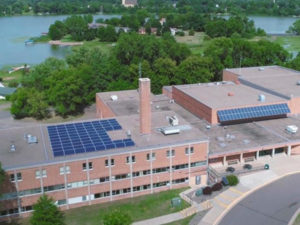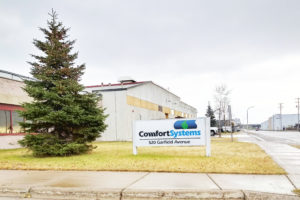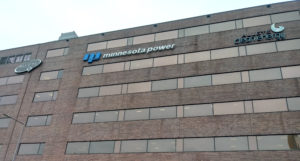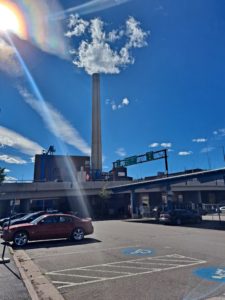Ask Civic Leaders to Diversify Energy Sources
As part of the City of Duluth’s plans to reduce greenhouse gas emissions by 80% from municipal operations by 2050, the city is making efforts to invest in different energy sources, such as investing in Minnesota Power’s community solar garden and looking into installing solar panels on reservoir caps. The City of Duluth also owns carbon reduction from the city-owned solar at Canal Park, the Duluth Public Library, and Lester Park. Although these are important steps for transitioning to renewable energy and reducing greenhouse gas emissions, they are only initial actions the city should be taking to show leadership in the transition to renewable energy sources.
The City will have a big impact on reducing greenhouse gas emissions by encouraging and enabling commercial operations and private citizens to transition away from energy derived from fossil fuels, like coal and natural gas. Still the City’s own actions and transition away from fossil fuels towards renewable energy is important because it can inspire and provide a model for others within the community to follow.
In 2017, a solar garden was developed in partnership with Minnesota Power, which currently provides 6% of the city’s electricity use in municipal operations, but that percentage could be higher if the utility were to source more of its energy from renewables. Three recently completed utility-scale solar arrays are also currently generating more than double the solar they were producing before 2022.
Duluth buys a significant amount of electricity from Minnesota Power, which sources about 53% renewable energy according to the 2021 Integrated Resource Plan and projects completed through 2023, although that includes biomass, a source that produces more carbon when burned than the plants and trees used can sequester. The city could leverage their influence on Minnesota Power to diversify energy production and encourage community-owned energy projects that benefit low-income households. The City could encourage implementation of diverse energy sources by revising zoning codes, working with utility providers, and continuing to push in Comfort Systems, Duluth’s municipal gas utility, to prioritize renewable energy. Ultimately, the City of Duluth should continue diversifying investments in energy production and move away from fossil fuels. For the time being, the City could offer and connect residents with existing and emerging rebates who are looking to install more energy efficient appliances, furnaces, and water heaters, until there is a greater push for electrification and even a transition of Comfort Systems away from natural gas entirely.
As the City acknowledges, a diversification and localization of energy sources and production could help the community’s resiliency. To complete this action, write to city leaders and request that they prioritize diversifying their funding for a more holistic energy policy and continue to follow the City of Duluth Climate Action Work Plan.
Did you take this action? Report it!
Help us show our collective community impact by reporting that you took this action.




